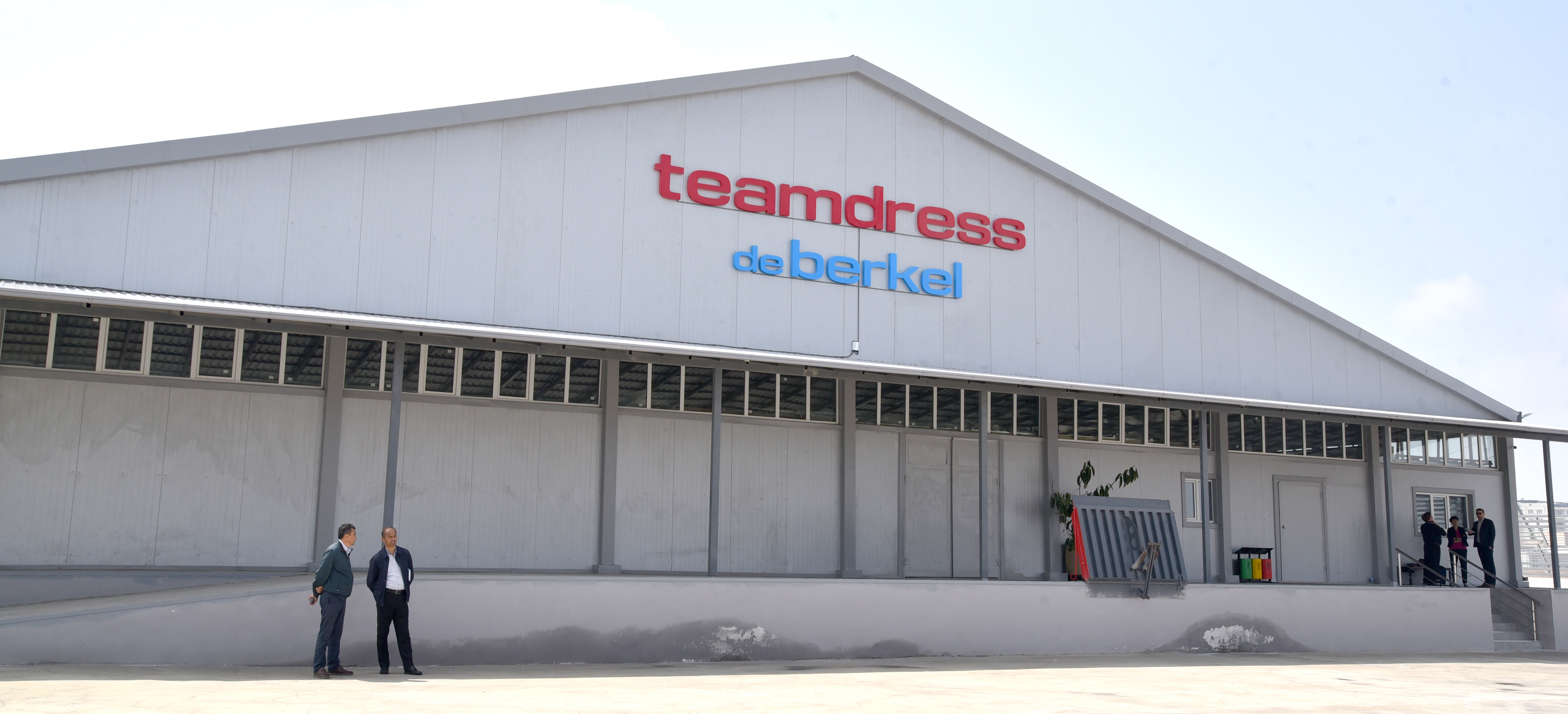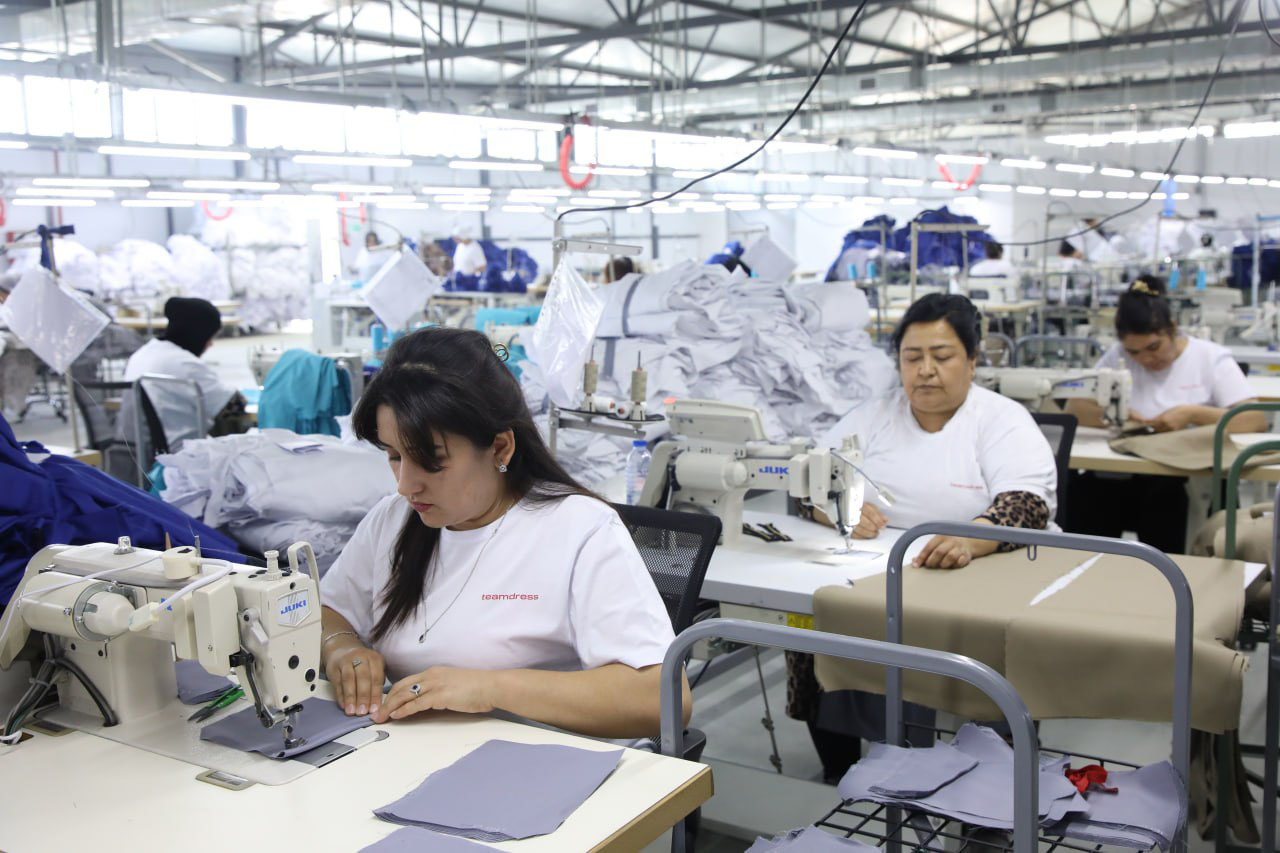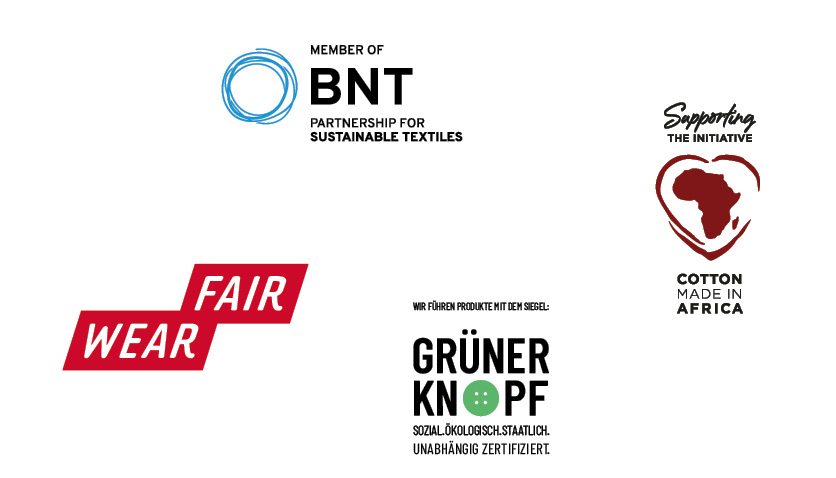Social
We see social commitment not only as the implementation of laws and guidelines, but rather as a fundamental task of companies in a free economy. Accordingly, we have taken on or continued a wide range of commitments:
Working conditions in the supply chain
We are in a constant process of implementing the requirements and guidelines of FWF, STeP and the Green Button along the entire supply chain.
In autumn 2024, a separate HRDD policy was developed to optimize this process formally and in practice.
Commitment per country
There are the following results for measures, audits, visits and improvements in the individual countries in which we manufacture by ourselves or on behalf of others:

Uzbekistan (own factory):
-
Promotion of the increase in production capacity incl. success bonus;
-
Deepening the ‘lighthouse project’ dual training in the textile industry, including the success of recruiting external companies for this model;
-
The partner vocational school was helped to adapt its curricula to industry requirements;
-
Adjustment of per-minute prices in production in the form of a switch to standard times;
-
Mid-March 2024 Expansion of the bonus system and adjustment of the remuneration system (higher and performance-related wages);
-
Hiring another permanent technician on site to support production;
-
Various visits by technical consultants and the management to make all processes more effective;
-
Establishment of a bus route to pick up the seamstresses;
-
Expansion of the company kindergarten;
-
Establishment of a social fund for employees in need; two seamstresses took advantage of the assistance during the year;
-
Introduction of an external complaints management system in accordance with the Fair Wear Foundation (FWF) guidelines; no external complaints were reported for 2024; the introduction of an internal complaints system is planned for 2025.

Albania:
-
The cooperation was terminated in accordance with the contract and this was announced in time. The latter was done for reasons of fairness on the one hand and as an exit procedure in the interests of the FWF on the other.
-
There were no labor law or social complaints.
Bosnia-Herzegovina:
-
The cooperation was terminated in accordance with the contract. Exit proceedings were initiated in time.
-
There were no labor law or social complaints.
Moldova:
-
Contracts with the four CMT production companies were extended;
-
One of the companies successfully underwent its first STeP monitoring audit.
-
Cooperation with another company was terminated due to insolvency.
-
The insolvency was not recognizable to us in advance, despite personal support for the company. The situation only became clear when we received a complaint about unpaid wages and violations of the labor guidelines via the FWF.
-
The factory had employed Indian migrant workers who used the FWF grievance mechanism to draw attention to their situation.
-
As an immediate response to the complaints, a financial aid package was made available in cooperation with the FWF. This covered pro rata expenses for accommodation, energy and return flight tickets. This complaint is currently still being clarified and has not yet been closed.
-
What lessons can we learn from this complaint for the future? Migrant workers are also a risk group in Moldova. The FWF complaints mechanism works. As a further measure, Teamdress has adapted the contracts of all production partners and excluded migrant workers, as the risk of non-identification of such a situation cannot be estimated.
-
There were no complaints from other companies. Visits were carried out by quality- and supply chain manager in 2024. During the visits, the local employees are spoken to and management pays particular attention to the health and safety conditions on site.
-
One of our technicians is permanently on site to optimize work processes.
Poland:
-
Wages and salaries were increased.
-
Visits were made regularly by Quality-, CSR- and supply chain manager.
-
There were no labor law or social complaints.
Ukraine:
-
The STeP re-certification of a contract manufacturer was carried out.
-
The first STeP monitoring audit was successfully carried out at our own company.
-
Particular attention is still being paid to the current war situation (see above).
-
The two generators supplied for two factories are working perfectly and have so far enabled almost uninterrupted production.
-
The trucks delivering raw materials are given small quantities of everyday consumer goods that are no longer available locally.
Third Party Audits:
Audits by independent third parties are planned for 2025, as we consider this to be an important strategy for strengthening labor rights etc. in the production countries.
In addition, training sessions are to be held in Moldovan companies in 2025 to promote social dialog and raise awareness of labor rights and the grievance mechanism.
Price and wage policy
In general, we expect our contract partners to pay their employees fair wages. In collaboration with these companies, we are planning a living wage strategy for 2025, which we will help to implement
To implement the strategy, we have chosen our own company in Uzbekistan as a pilot project.
As a first step, the data from all employees' payslips will be collected and analysed over a longer period. Data will be purchased from the WageIndicator Foundation as a reference value for the following wage gap analysis. The aim is to work with the company in an advisory role to develop a strategy to support living wages.
Commitment to diversity, equality and inclusion:
Gender Equality:
The Teamdress Group is headed by a female managing director.
In Uzbekistan, we have filled the positions of production management, HR management and the customs department with female managers. From summer 2025, the first two will receive further training and are due to attend evening courses at the local polytechnic university from 2026.
The operation there was planned to be barrier-free from the beginning.
Two seamstresses with disabilities are fully integrated into the daily work routine and the team.
The company's own Ukrainian factory is also managed by a female managing director.
We have appointed a female general agent for Moldova to take care of the local contract manufacturers.
Strong alliances
Teamdress is a member of the Partnership for Sustainable Textiles PST and supports the "Cotton made in Africa" project. Some of our products bear the label "Supporting the Initiative Cotton made in Africa". We are a member of the Fair Wear Foundation and were one of the first workwear manufacturers to be certified with the Green Button meta seal.
FAIR WEAR - Link: Teamdress-BRAND PERFORMANCE CHECK
Bündnis für nachhaltige Textilien - Links: BNT + Teamdress-MEMBER REPORT
Cotton made in Africa - Link:
COTTON MADE IN AFRICA
Grüner Knopf - Link:
Teamdress-GRÜNER KNOPF

Ultimately, however, human interaction is our strongest alliance.
To our great pleasure, we have so far been thanked by our employees for our social commitment, especially in our own companies. We are not only experiencing a good working atmosphere, but also identification with the company and thus the independent will to encourage improvements.